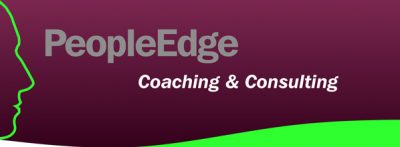 As we stand on the cusp of an exciting future in the world of work, one thing is abundantly clear: technology is reshaping every facet of our professional lives.
As we stand on the cusp of an exciting future in the world of work, one thing is abundantly clear: technology is reshaping every facet of our professional lives.
Among the most significant advancements is Artificial Intelligence (AI), which holds the potential to revolutionise how we operate, collaborate, and innovate within organisations. I firmly believe that embracing AI can be a driving force for positive change in organisational culture.
Why should AI be welcomed and what transformative impact is possible?
Unleashing Human Potential through Automation
Contrary to the fear of machines replacing humans, AI offers an opportunity to offload repetitive and mundane tasks, liberating employees to channel their energy into more creative, strategic, and value-driven endeavours.
This shift in job roles can spark a newfound sense of purpose among employees, as they focus on tasks that require critical thinking, problem-solving and interpersonal skills.
Enhanced Efficiency and Innovation
By automating routine processes, organisations can streamline operations, reduce errors, and accelerate decision-making. This efficiency gain translates into more time for teams to innovate and explore new avenues of growth. When employees see their ideas being translated into tangible outcomes faster than ever, a culture of innovation flourishes.
Using AI in remote and hybrid workplaces can assist in the collaborative effort and encourage input from all stakeholders – either synchronous or asynchronous.
Cultivating Continuous Learning
AI-powered tools provide personalised learning experiences, enabling employees to upskill and reskill on-demand. This empowers individuals to take ownership of their professional development, contributing to a culture of continuous learning and growth.
Organisations that facilitate learning become more adaptable to industry changes and better equipped to seize emerging opportunities.
Data-Driven Insights for Informed Decisions
AI’s ability to process vast amounts of data generates insights that were previously unattainable. These insights facilitate informed decision-making, aiding leaders in strategic planning and aligning efforts with organisational goals.
In turn, this data-centric approach zzzzzzzzzzcultivates a culture of evidence-based decision-making, minimising guesswork and maximising outcomes.
Fostering Inclusion and Diversity
AI algorithms, when designed with ethics and inclusivity in mind, can help reduce biases in recruitment, talent management and performance evaluation. By focusing on skills, experience, and potential, organisations can build diverse teams that contribute diverse perspectives. This commitment to fairness and equity nurtures an inclusive organisational culture.
The Human-AI Partnership
In the realm of AI, the real magic happens when humans and machines collaborate seamlessly. Organisations that embrace this partnership amplify their capabilities, harnessing the strengths of both humans and AI. This symbiosis empowers employees to engage in complex problem-solving, creativity and emotional intelligence, aspects that are uniquely human.
Preparing for AI’s Cultural Impact
Embracing AI necessitates a shift in mindset and a proactive approach to managing the cultural transition. Communication is key. Transparency about the role of AI, its benefits, and its limitations is crucial in alleviating concerns. Prioritising open dialogue ensures that employees understand AI as a tool that augments their skills rather than as a replacement.
In conclusion, as AI continues to evolve, its integration into the world of work is inevitable. The question isn’t whether to adopt AI, but how to do so thoughtfully and strategically. We should embrace the elements of AI that align with our organisations’ values, amplifies unique cultures and propels organisations toward a future where technology and humanity coexist harmoniously.
Let’s champion AI as an enabler of positive change, an enhancer of efficiency, and a catalyst for a more inclusive and innovative organisational culture.
Jo Attard Watters is the Managing Principal and Founder of PeopleEdge Coaching & Consulting. Jo is a professional, Master’s degree qualified Executive and Career Management Coach, Consultant, Business Adviser and Academic who works with individuals and organisations to help them “be the best they can be”. With significant experience within both Corporate and Not for Profit sectors, Jo is passionate about seeing her clients succeed in their areas of interest.
